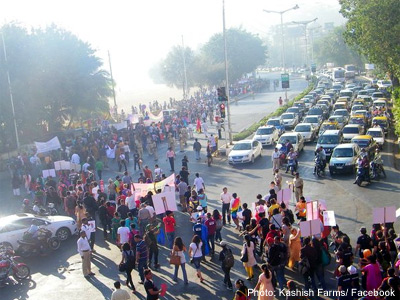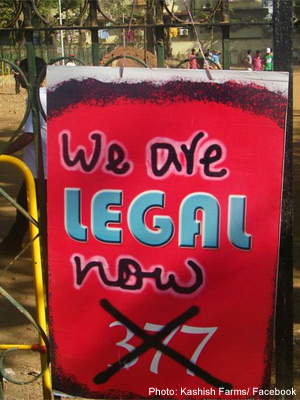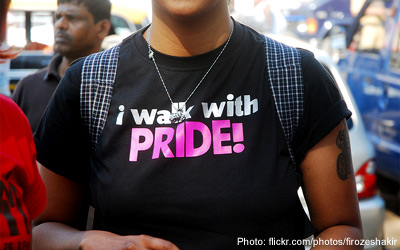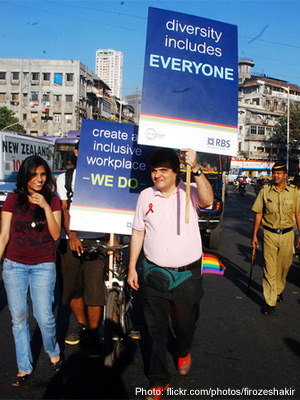



On Saturday, about 3,000 members of the LGBT community, and their friends and family poured onto the streets of downtown Mumbai – the highest number so far since gay marches have been annually since 2005.
DNA (Daily News & Analysis) reported on Jan 30, 2011:
For those who watched Saturday’s gay pride march in the city, the most striking observation was that compared to earlier parades, only a handful of marchers wore masks this time.
As the gay community celebrates the process of decriminalisation of homosexuality in the country, few participants at the parade felt the need to wear disguises. Vivek Anand, chief executive of Humsafar Trust, a group working with the gay, lesbian and transgender community said, “We were out there, without trying to hide who we are. There were a few mask-wearers, but most marchers were not afraid or ashamed to be there. This was the biggest change in the march.”
Marcher Praful Baweja said, “The whole idea of a gay pride march is to be proud of oneself and not hide yourself in the closet. In that way, this parade was a success.”
The Times of India reported on Jan 30, 2011:
The masks are down, so is the guard. Mumbai's queer community came out in droves on Saturday to not just celebrate pride but also to reinforce the message of equal rights and acceptance. The Queer Azaadi March, which was flagged off amid the din of slogans and cries for freedom, witnessed a perceptible difference in the mood of its participants, not necessarily from the Lesbian, Gay, Bisexual and Transgender (LGBT) community.
For one, fewer participants seemed hesitant to reveal their faces. The masks were there, but only to add to the drama, not to hide the people behind them. "This year, we saw many participants remove their masks without the fear of being exposed in front of the media," said Vikram Doctor, an organizer and a member of Queer Azaadi Mumbai, a collective of all the queer groups in the city who come together to organize the march.











 Printable Version
Printable Version










Reader's Comments
Definitely want to be there!
From http://www.globalpost.com/dispatch/india/100409/india-transgender-scandal-banned-bombay
Laxmi Tripathi stands tall and proud. She — who used to go by he — wears her hair long, her eyes decorated with thick black eyeliner and a low-cut top that reveals a hint of cleavage. Bangles adorn her wrists. Hailed as a success story in India, Tripathi has spoken at the United Nations and addressed conferences around the world on the rights of the transgender community.
And yet, being somewhat of a celebrity activist did not shield Tripathi from the very discrimination she has denounced.
Last week, officials at the Bombay Gymkhana in South Mumbai interrupted a dinner party there to kick Tripathi out of the exclusive club.
“I could never believe this could happen to me. I have been to so many places in the world, treated with so much dignity,” Tripathi said as she took a break from dubbing a new Bollywood film on the transgender community. And yet this incident happened “in a town where I’m more famous than anywhere in the world.”
Please log in to use this feature.